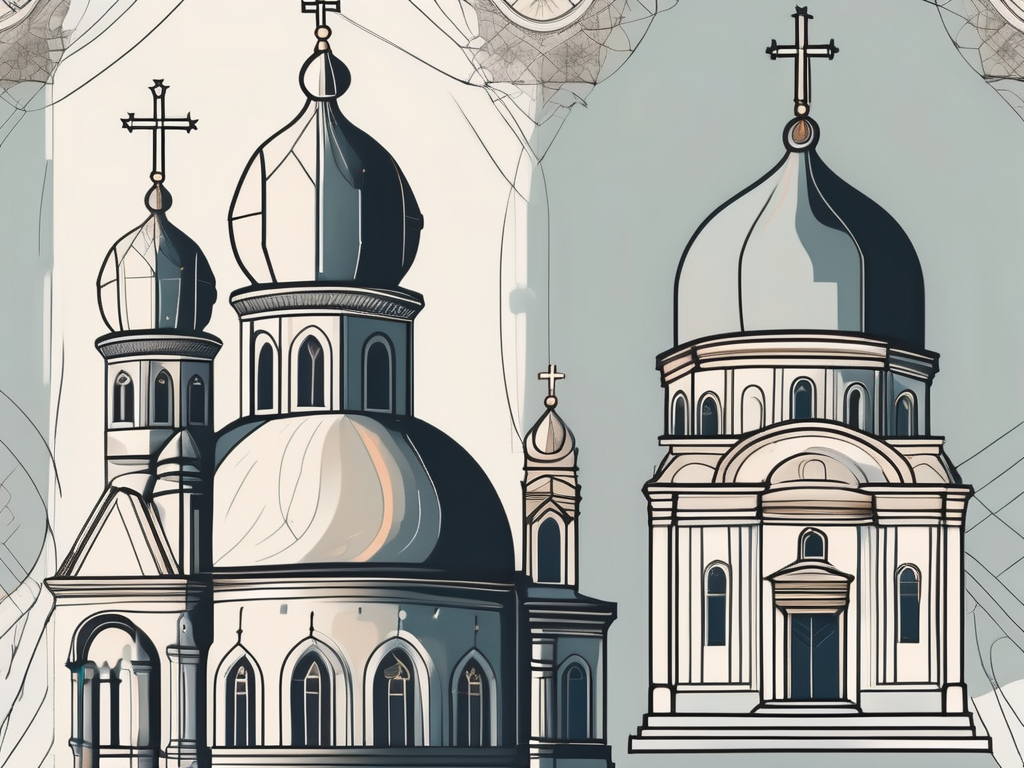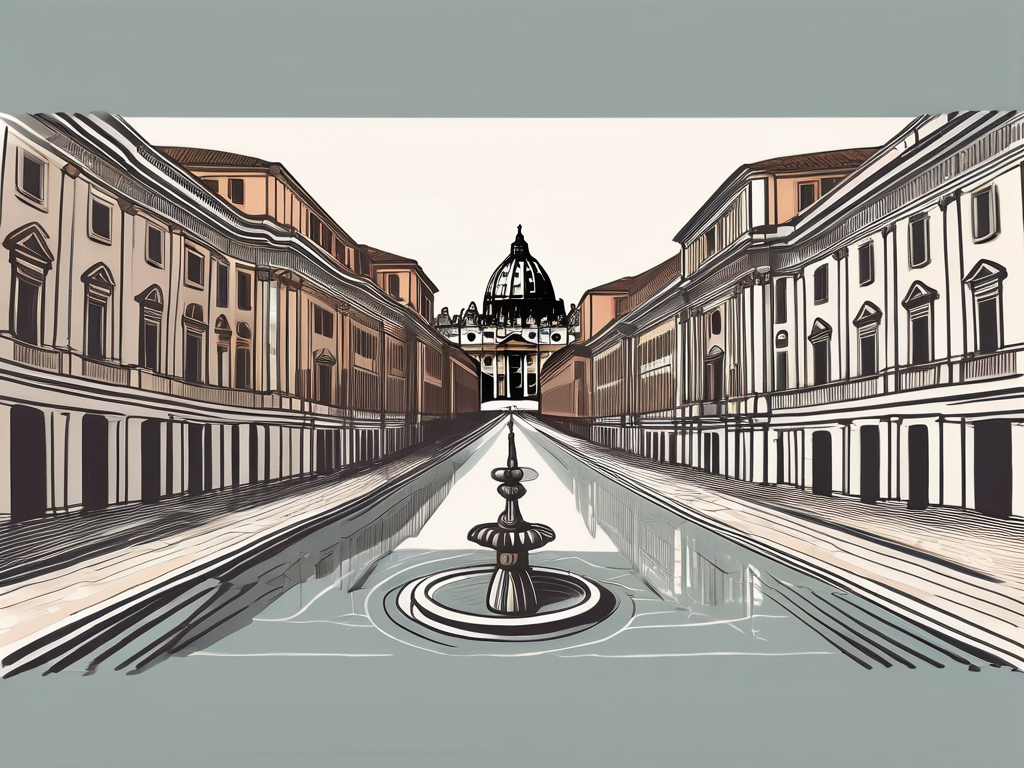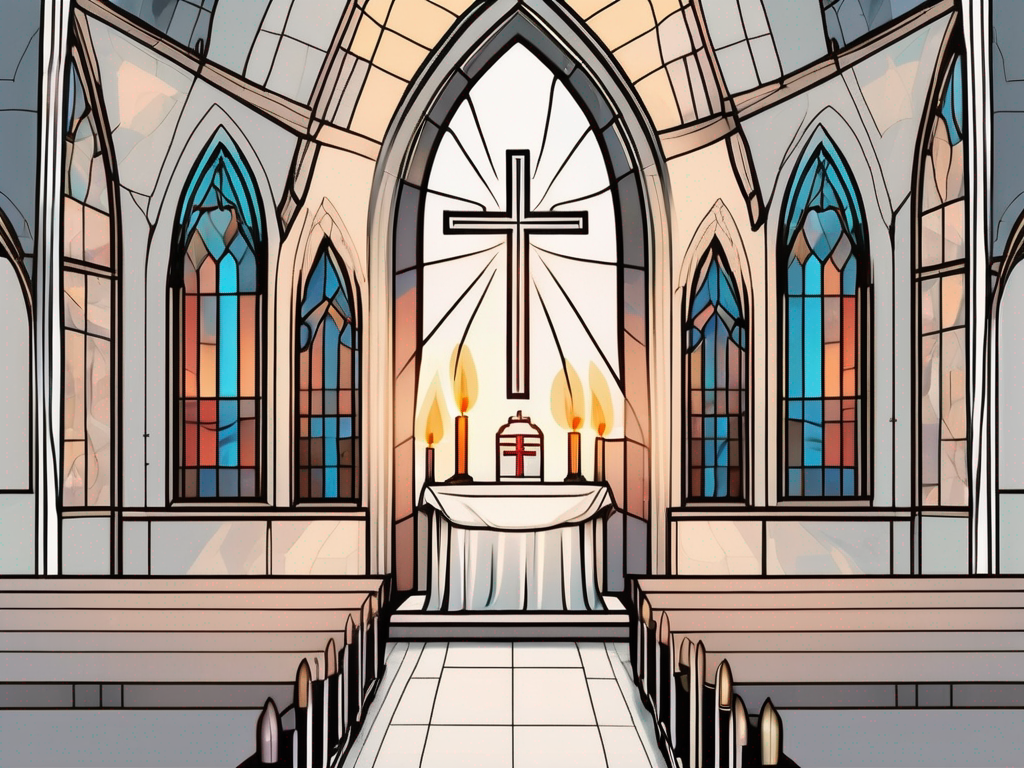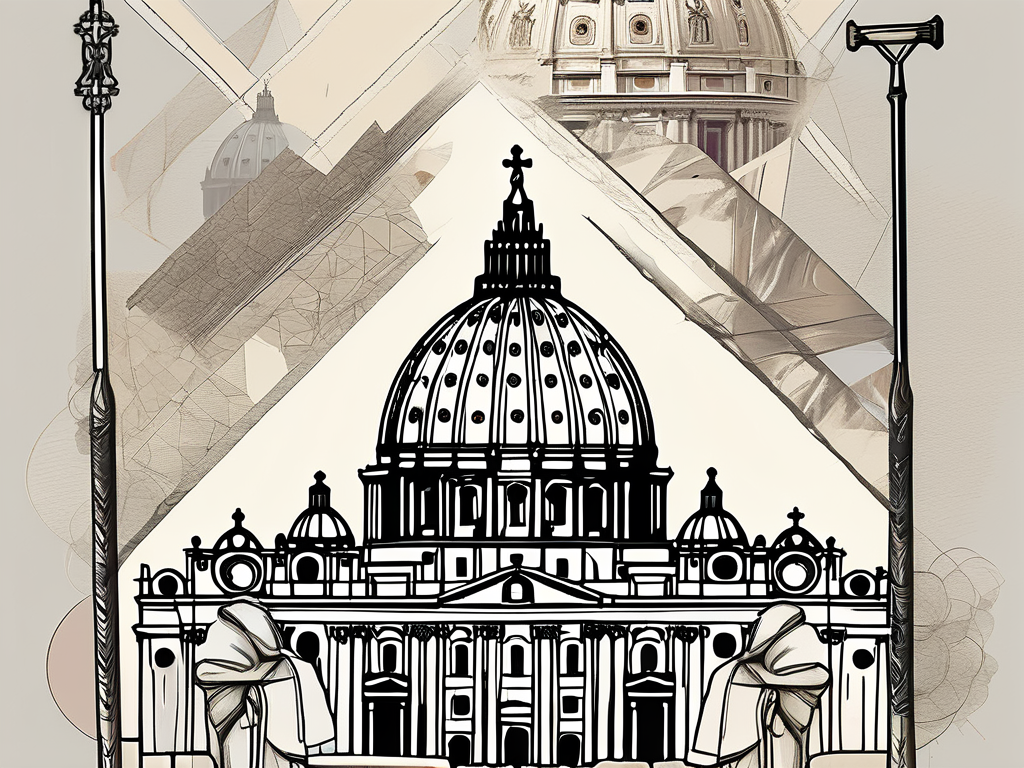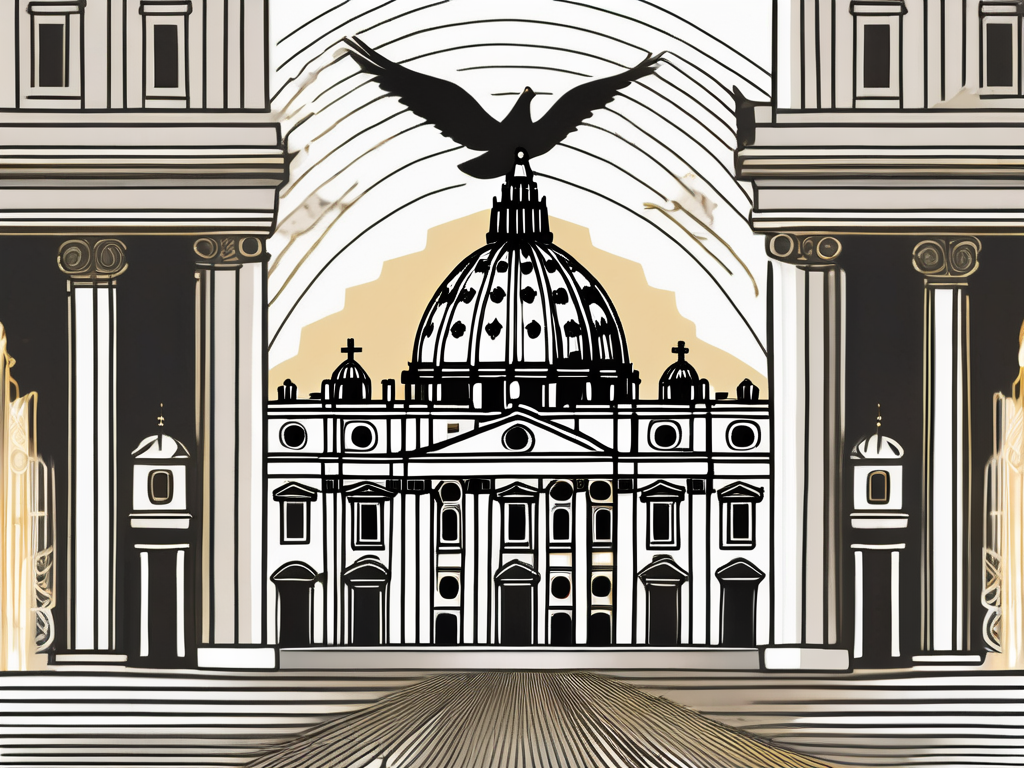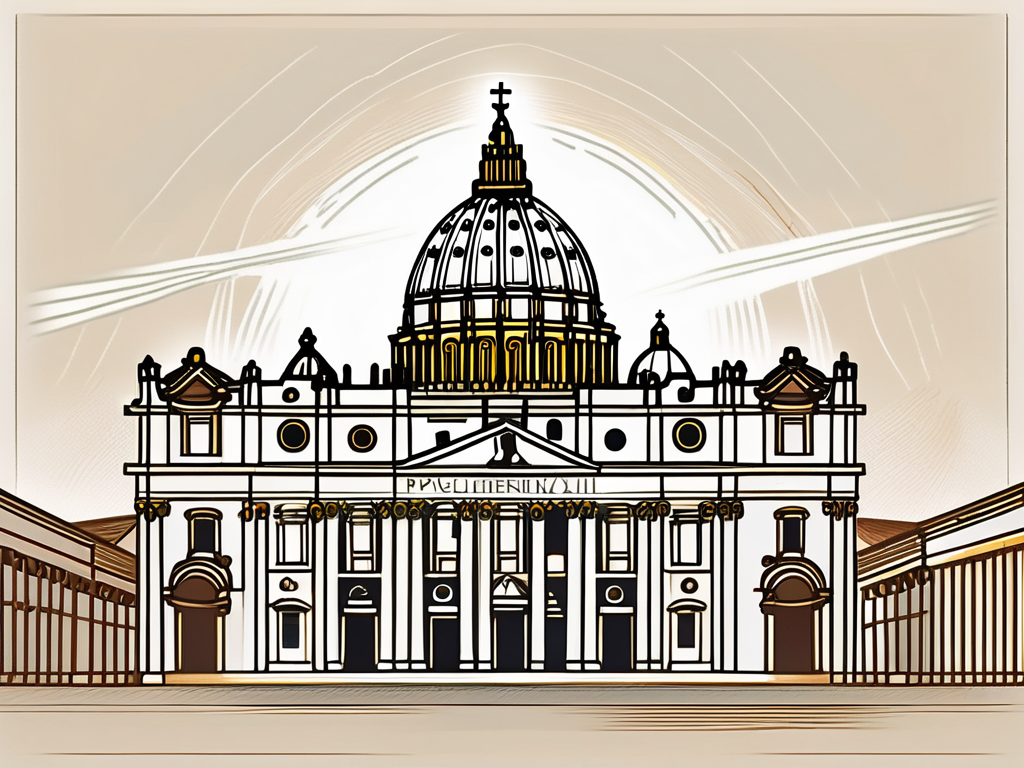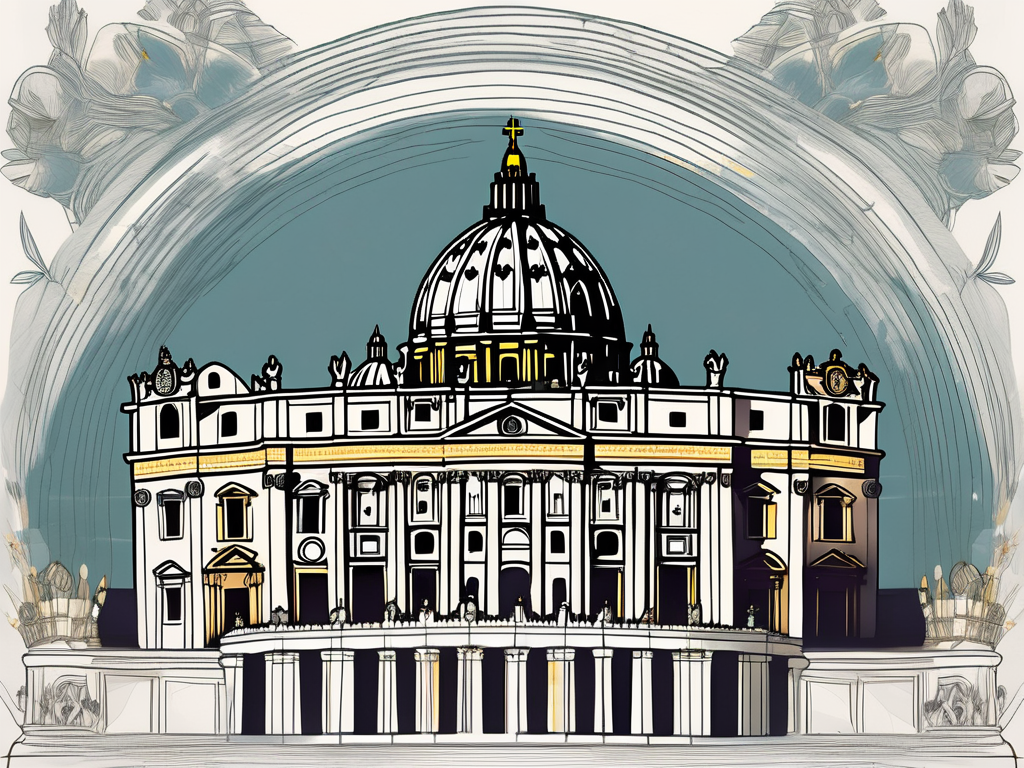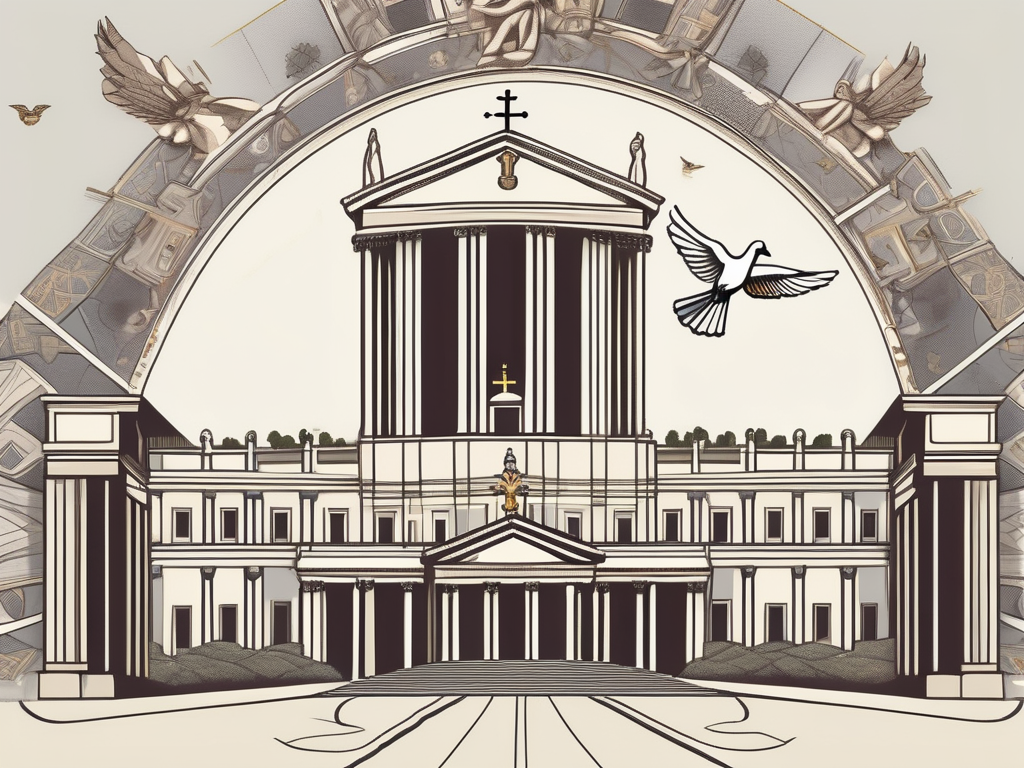In the rich tapestry of history, there are figures who leave an indelible mark on their times. One such influential figure is Pope Eugene IV, a man whose life and legacy continue to resonate in the annals of the Catholic Church. From his early beginnings to his major contributions and the controversies he faced, Eugene IV’s journey is not just a story of a pope, but a testament to human resilience and the power of faith.
Early Life and Education of Pope Eugene IV
Born into a humble family, Eugene IV came into this world at a time of great change and upheaval. His birth and family background shaped the man he would become, a man driven by the principles of justice, fairness, and the love of humanity.
Eugene IV’s upbringing and education played a crucial role in his development as a spiritual leader. Growing up, he was immersed in the teachings of the Church, fostering a deep connection with God and a profound understanding of religious philosophy.
Birth and Family Background
Eugene IV was born in the city of Venice in the year 1383. His family, though not of noble lineage, instilled within him a strong sense of morality and dedication to the principles of Catholicism. It was their unwavering support and love that provided the foundation for his future endeavors.
As a child, Eugene IV witnessed the struggles and hardships faced by his family. Living in a modest home, they relied on hard work and determination to make ends meet. Despite their humble circumstances, Eugene IV’s parents emphasized the importance of integrity, compassion, and faith. These values would shape his character and guide him throughout his life.
The city of Venice, known for its rich cultural heritage and vibrant religious life, also played a significant role in Eugene IV’s upbringing. The grandeur of the city’s churches and the devotion of its inhabitants left a lasting impression on the young boy. He was captivated by the solemnity of religious ceremonies and the sense of community that came with worshiping together.
Education and Early Religious Influence
From a young age, Eugene IV showed great promise in his studies. He pursued an education in theology, immersing himself in the works of the great theologians of his time. Through their teachings, he gained profound insights into the complexities of faith and the role of the Church in society.
At the prestigious University of Bologna, Eugene IV delved deeper into his theological studies. Surrounded by renowned scholars and intellectuals, he engaged in lively debates and discussions that challenged his beliefs and broadened his perspective. It was during this time that he began to develop his own theological framework, one that emphasized the importance of compassion, social justice, and the pursuit of truth.
Eugene IV’s early religious influence was marked by the guidance of esteemed priests and scholars. Their mentorship not only deepened his understanding of the scriptures but also ignited a passion within him to serve God and his fellow believers.
As he delved into the works of Saint Augustine and Saint Thomas Aquinas, Eugene IV became fascinated by the intricate relationship between faith and reason. He recognized the need for a balanced approach to theology, one that embraced both the spiritual and intellectual aspects of religious life.
During his time at the university, Eugene IV also witnessed the impact of the Renaissance, a period of cultural and intellectual revival. The ideas of humanism and the rediscovery of ancient texts influenced his thinking, prompting him to explore new avenues of theological thought and engage with the changing world around him.
With his education and early religious influence, Eugene IV was well-prepared to embark on his journey as a spiritual leader. Little did he know that his unwavering commitment to justice and his deep love for humanity would lead him to become one of the most influential popes in history.
Rise to Papacy
Eugene IV’s ascent to the papacy was not merely a stroke of luck; it was the culmination of years of hard work, diplomacy, and unwavering commitment to the Church. His journey to the highest position of authority within the Catholic Church is a testament to his exceptional leadership and unwavering conviction.
Early Career in the Church
Before ascending to the papacy, Eugene IV embarked on a remarkable career within the Church. He dedicated himself to spreading the message of peace and unity, becoming known for his diplomatic skills and ability to bridge divides. His efforts did not go unnoticed, and he soon found himself entrusted with important roles within the hierarchy of the Church.
During his early years, Eugene IV displayed a deep understanding of theology and a strong commitment to the teachings of the Church. He immersed himself in the study of canon law, becoming well-versed in the intricate legal framework that governed the Church’s operations. This knowledge would prove invaluable later in his career, as he navigated complex ecclesiastical and political challenges.
As a young priest, Eugene IV demonstrated a remarkable talent for diplomacy. He was often called upon to mediate disputes between rival factions within the Church, using his keen intellect and persuasive abilities to bring about peaceful resolutions. His reputation as a skilled negotiator grew, and he became a trusted advisor to influential figures within the Church hierarchy.
Recognizing his exceptional abilities, Eugene IV was appointed to various important positions within the Church. He served as a papal legate, representing the Pope in diplomatic missions across Europe. His success in these endeavors further solidified his reputation as a capable leader and earned him the respect and admiration of his peers.
Election and Ascension to Papacy
In 1431, amidst a world defined by political intrigue and religious schisms, Eugene IV was elected as the Pope, a title bestowed upon him by the College of Cardinals. His ascension to the papacy marked a turning point in the history of the Catholic Church, setting the stage for his major contributions and reforms.
The election of Eugene IV came at a critical time for the Catholic Church. The Western Schism had divided the Church into multiple factions, each recognizing a different pope. This schism had caused great confusion and undermined the Church’s authority. Eugene IV, with his reputation for diplomacy and his deep understanding of canon law, was seen as the ideal candidate to bring unity and stability back to the Church.
As Pope, Eugene IV wasted no time in implementing his vision for the Church. He embarked on a series of reforms aimed at addressing the issues that had plagued the Church for years. He sought to strengthen the authority of the papacy, streamline the Church’s administrative structure, and combat corruption within its ranks.
Under Eugene IV’s leadership, the Catholic Church experienced a period of renewal and revitalization. He called for the Council of Florence, a gathering of bishops and theologians from across Europe, where important theological and doctrinal issues were discussed and resolved. This council played a crucial role in reestablishing the Church’s unity and reaffirming its teachings.
Eugene IV’s papacy was marked by his unwavering commitment to the Church and his tireless efforts to promote its mission. He worked tirelessly to strengthen the Church’s influence, both within Europe and beyond. His diplomatic skills and ability to navigate complex political landscapes earned him the respect and admiration of rulers and religious leaders alike.
In conclusion, Eugene IV’s rise to the papacy was not only a result of his exceptional leadership and unwavering conviction, but also a testament to his remarkable career within the Church. His early dedication to spreading peace and unity, his diplomatic skills, and his deep understanding of theology and canon law all played a crucial role in shaping his journey to the highest position of authority within the Catholic Church.
Major Contributions and Reforms
Pope Eugene IV’s time in office was marked by notable contributions and significant reforms that shaped the course of the Church’s history. His transformative vision and unwavering dedication to the principles of fairness and justice resulted in radical changes that continue to impact the Church to this day.
Role in the Council of Florence
One of Eugene IV’s most significant contributions was his involvement in the Council of Florence. This historic event aimed to heal the divisions within the Christian Church, seeking unity amidst longstanding theological disagreements. Eugene IV played a pivotal role in bringing together theologians and representatives from various Christian denominations, fostering dialogue and understanding.
Under Eugene IV’s guidance, the Council of Florence achieved a remarkable feat – the temporary reunion of the Eastern and Western branches of Christianity. While the union was ultimately short-lived, it served as a powerful testament to Eugene IV’s ability to bridge divides and pursue unity in the face of seemingly insurmountable obstacles.
Efforts in Church Reforms
Eugene IV was also a fervent advocate for church reforms. He recognized the need for internal changes to address corruption and ensure the Church was aligned with its true mission. He implemented measures to promote financial transparency and accountability, ensuring that the Church’s resources were utilized for the betterment of society.
Furthermore, Eugene IV emphasized the importance of education and intellectual growth within the clergy. He believed that well-informed and intellectually curious priests were essential for the proper dissemination of the Church’s teachings.
Controversies and Challenges
No life, especially that of a religious figure, is devoid of challenges and controversies. Eugene IV’s tenure as the Pope was no exception, as he faced various obstacles that tested his resolve and leadership. These trials, however, served to further shape his character and leave a lasting impact on the Church.
Conflicts with the Council of Basel
A significant controversy that unfolded during Eugene IV’s papacy was his ongoing conflicts with the Council of Basel, a gathering of church leaders aiming to reform the Church. Differences in approach and conflicting interests led to a power struggle between Eugene IV and the Council.
Despite the challenges, Eugene IV stood firm in his beliefs and actions, defending the authority of the papacy and working to maintain the integrity of the Church. His unwavering commitment to the Catholic faith and his steadfast leadership proved instrumental in overcoming these conflicts.
Political Struggles and Exile
Eugene IV’s papacy was also marred by political struggles and periods of exile, often brought about by the ever-shifting alliances and power struggles of the time. His resilience in the face of political adversity earned him respect and admiration from his followers.
Death and Succession
Every life eventually comes to an end, and Eugene IV’s journey was no exception. The final years of his papacy were marked by declining health and looming uncertainties. However, his legacy and impact on the Church endured, shaping the course of its future long after his passing.
Final Years and Death
In his final years, Eugene IV remained committed to his mission, despite his failing health. He continued to champion the principles that defined his papacy, leaving a lasting impression on those who knew him and worked alongside him.
On February 23, 1447, Pope Eugene IV breathed his last. His passing marked the end of an era, but his influence would live on, guiding the Church and inspiring generations to come.
Legacy and Impact on the Church
Eugene IV’s legacy is one of fortitude, conviction, and a tireless pursuit of unity within the Church. His contributions and reforms laid the groundwork for future popes and sparked fundamental changes that shaped the modern Catholic Church.
The influence of Eugene IV can be seen in the continued emphasis on dialogue and understanding among different Christian denominations. His efforts towards internal church reforms set a precedent for future leaders, highlighting the importance of transparency and accountability within religious institutions.
As we reflect on the life and legacy of Pope Eugene IV, we are reminded of the profound impact one person can have. His unwavering dedication to his faith, his constant pursuit of justice, and his tireless efforts to bridge divides serve as a testament to the power of conviction and the enduring nature of the human spirit.



